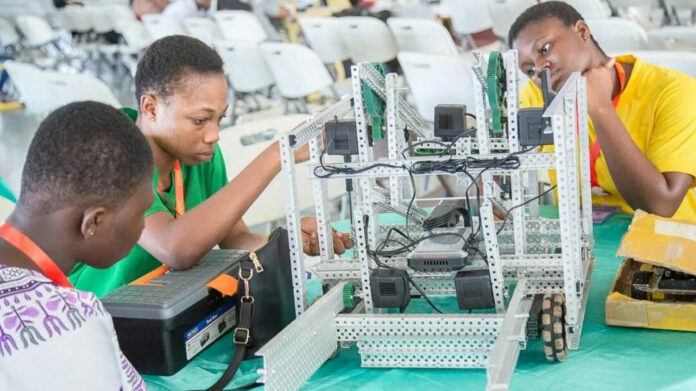Kenyan youth will soon have the chance to design and build their robots using 3D-printed parts and second-hand phones through a collaboration between UNESCO and Infinix Mobile, which targets university students in STEM fields.
The program will teach students how to train robots to recognize images, sounds, and poses, and program them to perform simple tasks.
Google’s John Kimani asserted the importance of investing in youth, stating that the mobile app ‘Coglabs’ will allow anyone to explore machine learning and programming without needing a laptop.
Beginning in Kenya, the company will organize a series of Coglabs workshops that will make it possible for everyone to create their robots.
Infinix Mobile is set to offer hands-on learning in robotics, machine learning, and AI to primary, secondary, and tertiary students, targeting educational equity. This will help build up skills in these areas, according to Michael Zeng, the brand manager of Infinix Kenya.
For example, in 2020, the Hub advanced AI education by releasing voice interaction technology in Hausa, and it now supports major African languages.
It has also set up R&D centres in seven African countries intending to expand its language ability, employing more than 120 linguists.
Murang’a County gives 700 youth Sh15,000 startup capital
A 2023 report by the Association of Artificial Intelligence Kenya shows that there are currently 2500 professionals in artificial intelligence, including those in machine learning and data science, in the country. This shows the need for more youth to get into the AI field.
Of the 47.6 million people in Kenya, 75% are below the age of 35, according to the 2019 Census. The Global System for Mobile Communications Association Africa AI report indicates that in 2023, funding towards the AI sector in Kenya was $15 million.
This concurs with Forbes’ projection in 2024 of growth of the AI market to $407 billion by 2027, up from $86.9 billion in 2022.










